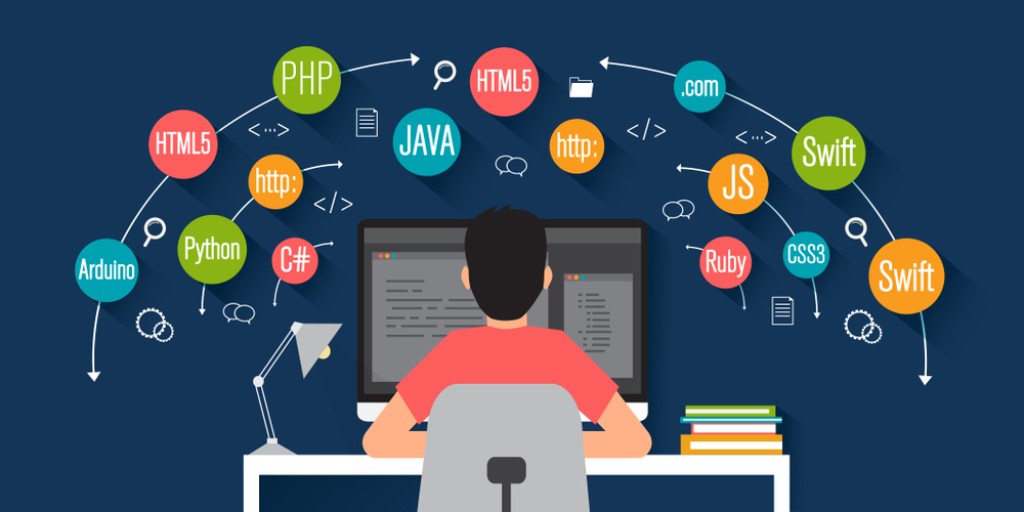Web scraping is the process of extracting data from websites. It is becoming increasingly popular as more and more organizations rely on data to make informed decisions. A web scraper is a tool that automates this process and enables organizations to collect data from multiple sources efficiently and cost-effectively.
Numerous services offer web scraping solutions. But it’s widely advised that you build an in-house web scraper. While this may seem costly in the short term, if your company needs data frequently, it’s worth it in the long run.
Choosing the right programming language for web scraping can be daunting, as different languages have their strengths and weaknesses. This article will explore the best programming languages for web scraping, including Python, Ruby, and JavaScript.
Check Also: 6 Best Programming Language for AI
Why It’s Essential To Have an In-house Web Scraper
An in-house web scraper allows an organization to extract data from websites when it pleases automatically. This can be useful for various purposes, such as market research, lead generation, and competitive analysis.
One of the main benefits of building an in-house web scraper is that it allows an organization more significant control over the collected data. Instead of relying on third-party tools or services, an in-house scraper can be designed to cater to peculiar organizational needs. Consequently, your company enjoys more accurate and relevant data, which can be used to inform business decisions.
Another benefit is that an in-house web scraper can save time and resources. While this may seem ironic, finding a reliable web scraper can be time-consuming. Theirs is also the risk of investing in the wrong tool. For instance, in a situation where there is an issue, and the third-party scraper’s support team is nowhere to be found, you’ll save time trying to find a solution.
However, upon taking time to build the right tool, processes can be automated to free up employees to focus on other tasks. Additionally, by controlling the data collection process, an organization can reduce the risk of data breaches or other security issues.
An in-house web scraper can also provide an organization with a competitive advantage. For example, by scraping websites for pricing data, an organization can quickly and easily identify market trends and adjust its pricing accordingly. Similarly, by scraping job boards, an organization can identify potential candidates for open positions more efficiently than manually searching through resumes.
The Pros and Cons of Using Python in Web Scraping
Python is a popular programming language for web scraping due to its ease of use and the availability of powerful libraries such as Scrapy and Beautiful Soup. These libraries enable developers to navigate and extract data from web pages easily. Additionally, Python has a large and active community, so many resources are available for troubleshooting and problem-solving. However, one disadvantage of using Python web scraping is that it can be slow when scraping large amounts of data.
Advantages And Disadvantages of Using Ruby In Web Scraping
Ruby is another popular language for web scraping due to its simplicity and the availability of powerful libraries such as Nokogiri and Mechanize. These libraries allow developers to navigate and extract data from web pages easily. Additionally, Ruby has a strong focus on developer productivity, so it is often easier to write and maintain code written in Ruby. Though, one downside to using Ruby is that it can be slower than other languages when scraping large amounts of data.
Strengths And Weaknesses of Javascript For Web Scraping
JavaScript is a powerful language for web scraping, allowing developers to interact with web pages in real time. This is useful for scraping dynamic web pages that are generated using JavaScript. Additionally, web browsers widely support JavaScript, meaning it can be used to scrape data from almost any website. But, one frustration with using JavaScript for web scraping is that it requires a headless browser, which can add complexity to the scraping process.
Which Is The Best Programming Language For Web Scraping
Ultimately, the best programming language for web scraping will depend on the organization’s specific needs. Python web scraping is an excellent choice for beginners due to its ease of use and the availability of powerful libraries. Ruby is a good choice for developers who value productivity and simplicity. JavaScript is an excellent choice for scraping dynamic web pages. However, if you have a large dataset to scrape, then there may be better options than Python and Ruby; in that case, JavaScript or other languages like Go and Rust are better suited.
Conclusion
Web scraping is an essential tool for organizations that rely on data to make informed decisions. Choosing the correct programming language for web scraping is crucial, as different languages have their strengths and weaknesses. Python, Ruby, and JavaScript are popular choices for web scraping, but the best option will depend on the organization’s specific needs.


